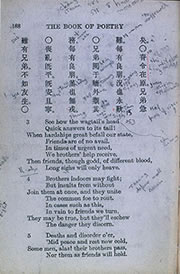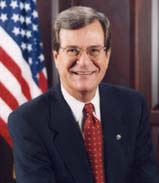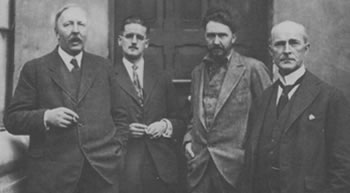For scientific purposes the marginal or borderline cases are usually the most instructive.
May 08, 2004
Torture at
Abu Ghraib
Seymour M. Hersh
The New Yorker, May 7, 2004
***
The
Taguba Report
Article 15-6 Investigation of the 800th Military Police Brigade
Compiled by Major General Antonio M. Taguba,
Deputy Commanding General Support,
Coalition Forces Land Component Command
Completed in February and not intended for public release. Details abuses more horrific even than those in the horrific photographs we by now have all seen.
***
The
Third Geneva Convention
Relative to the Treatment of Prisoners of War
The
Fourth Geneva Convention
Relative to the Protection of Civilian Persons in Time of War
May 07, 2004
Bush
support tied to misinformation
American Assembler
May 05, 2004
UN
General Assembly Resolution 181
November 29, 1947
Calls for an end to the Palestine Mandate and endorses a plan for partition.
UN
Security Council Resolution 242
November 22, 1967
In response to the Israeli capture of the Sinai Peninsula from Egypt, the Golan Heights from Syria, and the West Bank from Jordan in the 1967 war. Emphasizes both “the inadmissibility of the acquisition of territory by war” and the need for “a just and lasting peace in which every State in the area can live in security.” Calls for “[w]ithdrawal of Israel armed forces from territories occupied in the recent conflict,” a “just settlement of the refugee problem,” and “a just and lasting peace in which every State in the area can live in security.”
UN
Security Council Resolution 338
October 22, 1973
In response to the Yom Kippur war. Reaffirms 242 and calls for its immediate implementation.
UN
General Assembly Resolution 3379
November 10, 1975
“Taking note” of earlier resolutions that “international co-operation and peace require the achievement of national liberation and independence, the elimination of colonialism and neo-colonialism, foreign occupation, zionism, apartheid and racial discrimination in all its forms, as well as the recognition of the dignity of peoples and their right to self-determination” (World Conference of the International Women’s Year, Mexico City, June 19 to 2 July 2, 1975) and that “the racist regime in occupied Palestine and the racist regimes in Zimbabwe and South Africa have a common imperialist origin, forming a whole and having the same racist structure and being organically linked in their policy aimed at repression of the dignity and integrity of the human being” (Assembly of Heads of State and Government of the Organization of African Unity, Kampala, July 28 to 1 August 1, 1975), “determines that zionism is a form a racism and racial discrimination.”
Discussion of this resolution at the 2001 United Nations Anti-Racism Summit in Durban, South Africa led the US and Israeli delegations to walk out.
UN
Security Council Resolution 425
March 19, 1978
“Convinced that the present situation impedes the achievement of a just peace in the Middle East, Calls for strict respect for the territorial integrity, sovereignty and political independence of Lebanon within its internationally recognized boundaries;
“Calls upon Israel immediately to cease its military action against Lebanese territorial integrity and withdraw forthwith its forces from all Lebanese territory . . . .”
UN
Security Council Resolution 672
October 12, 1990
Reaffirms that “a just and lasting solution to the Arab-Israeli conflict must be based on” resolutions 242 and 338, “[e]xpresses alarm at the violence which took place on 8 October at the Al Haram Al Shareef and other Holy Places of Jerusalem resulting in over twenty Palestinian deaths and to the injury of more than one hundred and fifty people, including Palestinian civilians and innocent worshippers,” and [c]alls upon Israel, the occupying Power, to abide scrupulously by its legal obligations and responsibilities under the Fourth Geneva Convention, which is applicable to all the territories occupied by Israel since 1967.”
UN
Security Council Resolution 673
October 24, 1990
Expresses “alarm at the rejection of Security Council resolution 672 by the Israeli Government,” “[d]eplores the refusal of the Israeli Government to receive the mission of the Secretary-General [called for in 672] to the region,” and urges reconsideration and the full compliance with 672.
UN
Security Council Resolution 681
December 20, 1990
Among other items “[e]xpresses . . . grave concern over the rejection by Israel of Security Council resolutions 672 and 673,” “[d]eplores the decision of the government of Israel to resume deportations of Palestinian civilians in the occupied territories,” and “[u]rges the government of Israel to accept de jure applicability of the Fourth Geneva Convention of 1949, to all the territories occupied by Israel since 1967, and to abide scrupulously by the provisions of the said convention.”
UN
Security Council Resolution 1322
October 7, 2000
“Deplores the provocation carried out at Al-Haram Al-Sharif in Jerusalem on 28 September 2000,” “condemns acts of violence [in the region], especially the excessive use of force against Palestinians, resulting in injury and loss of human life,” and reaffirms, in language taken from resolution 672, that “a just and lasting solution to the Arab and Israeli conflict must be based on” resolutions 242 and 338.
Adopted with 14 votes in favor and the abstention of the United States.
***
A
List of UN Security Council Resolutions “against Israel”
1955-1992
UN Security Council Resolutions on Israel
“These provide a revealing parallel with US insistence that Iraq must comply with UN resolutions or face a massive military assault.”
May 04, 2004
BBC News World Edition, May 4, 2004, 07:43 GMT
No mention of this on CNN.com international or US editions more than five
ten hours after the BBC dateline.
(Brief AP wire-service account posted on CNN international at 17:58 GMT.)
Your unqualified support of Sharon’s extra-judicial assassinations, Israel’s Berlin Wall-like barrier, its harsh military measures in occupied territories, and now your endorsement of Sharon’s unilateral plan are costing our country its credibility, prestige and friends. (more)
***
Diplomats
Slam Blair on Mid-East
BBC News World Edition, April 27
We the undersigned former British ambassadors, high commissioners, governors and senior international officials, including some who have long experience of the Middle East and others whose experience is elsewhere, have watched with deepening concern the policies which you have followed on the Arab-Israel problem and Iraq, in close co-operation with the United States. (more).








 Trent
Lott, 25 September 2003
Trent
Lott, 25 September 2003





